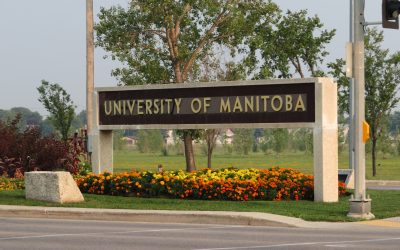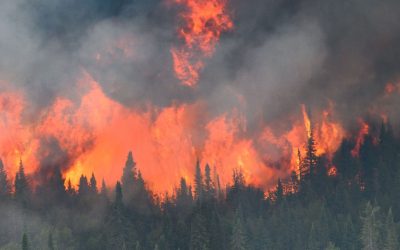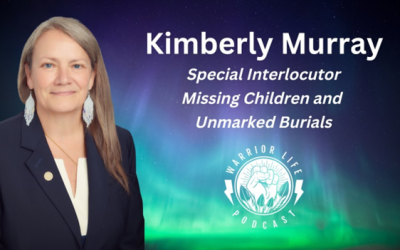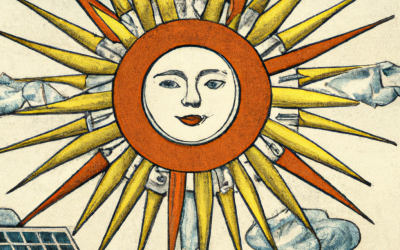For The New York Times, which started this whole fiasco dating from Feb. 27, 2020, with a podcast designed to drum up disease panic, it’s been a drip, drip, drip of truthiness ever since. A fortnight ago, the paper finally decided to report on vaccine injury from...
Commentary
‘Fireworks’ As Defence Opens Case In Coutts Two Trial
Anthony Olienick and Chris Carbert are on trial for conspiracy to commit murder and firearms charges in relation to the Coutts Blockade into mid-February 2022. In opening her case before a Lethbridge, AB, jury on July 11, Olienick’s lawyer, Marilyn Burns stated "This...
Cowering Before Carbon
Despite turning this back this spring, South Dakota continues to be under attack by a freshly born green corporation, Summit Carbon Solutions, funded by China’s Belt and Road initiative, and you, through the Green New Deal provisions buried in the last debt ceiling...
Undue Censorship Still Skews COVID Treatments
The censorship and institutional capture evident in the pandemic should be an ongoing concern for policy-makers, scientists, and the medical field. Someone who encountered this first-hand was clinical trials researcher Sabine Hazan, who testified to the National...
Featured News
Canadian Property Rights Index 2023
A Snapshot of Property Rights Protection in Canada After 10 years
Alberta Politics and Empty Promises of Health-care Solutions
The writ has been dropped and Albertans are off to the polls on May 29. That leaves just four weeks for political leaders and voters to sort out what is arguably the most divisive, yet significant, issue for this election - health care. On Day 2, NDP leader Rachel...
Rodney Hide: My Journey
It’s been awhile since I have written. I have tried. But I have not had anything useful to say. My concern has always been public policy. What should the government do for the best result? My writing on the government was technical. Here’s what the government is...
Sadly, AFN Remains Bad Venue for Future-Oriented Prosperity Message
Manitoba’s First Nations should reflect on the AFN’s direction as they consider negative reactions to Conservative Leader Pierre Poilievre at a recent Assembly of First Nations (AFN) meeting in Montreal. Poilievre, who in the past has boldly said we need to end the...
They Are Closing Up the Internet
Such confusing times, so much in dispute, so much to discover and know. Billions of people are right now lifting their phones to their faces and searching for answers. The results they see are dramatically different from what they were just a few years ago. You have...
Etam: Trump and Energy
Did you know that the United States Secret Service has a Chief of Communications? Does that not seem a little odd? To excel at his job, would he be perfectly silent? Well, he’s not…Over the weekend the Chief of Communications of the United States Secret Service took...
Plenty Wrong With UManitoba’s Purge Of Colonialist Art
“Who controls the past controls the future. Who controls the present controls the past,” George Orwell wrote in 1984. A powerful example of that is happening right now as Cultural Marxists are decolonializing the art collection at the University of Manitoba. Karen...
Were the Fires Last Summer Deliberately Set?
A Google Earth satellite video is making the rounds on twitter. It shows the moment an arc of fires began in northern Quebec, the smoke rising. It looks like people calculated the prevailing winds so that the smoke would blow south. Then connected via sat phone, they...
Sites of Truth, Sites of Conscience: the Special Interlocutor’s Historical Report
The Office of the Special Interlocutor (OSI) has released its historical report (Sites of Truth, Sites of Conscience: Unmarked Burials and Mass Graves of Missing and Disappeared Indigenous Children in Canada). While OSI states that “the primary purpose of this Report...
‘Hottest Year in History’ Alarms are False
It’s that time of year for breathless reports about planetary heating. Multilateral institutions, including the United Nations, recently made worldwide headlines, proclaiming 2023 as the hottest year in history. The increase in average temperature, versus the...
Free Speech Was Curtailed In Canada. Did You Notice?
In the waning days of June, the federal Liberal government, supported by the New Democratic Party, passed legislation to take away some of the rights to free speech in Canada. Bill C-59 was an omnibus budget bill, which meant its passage was assured lest the...











